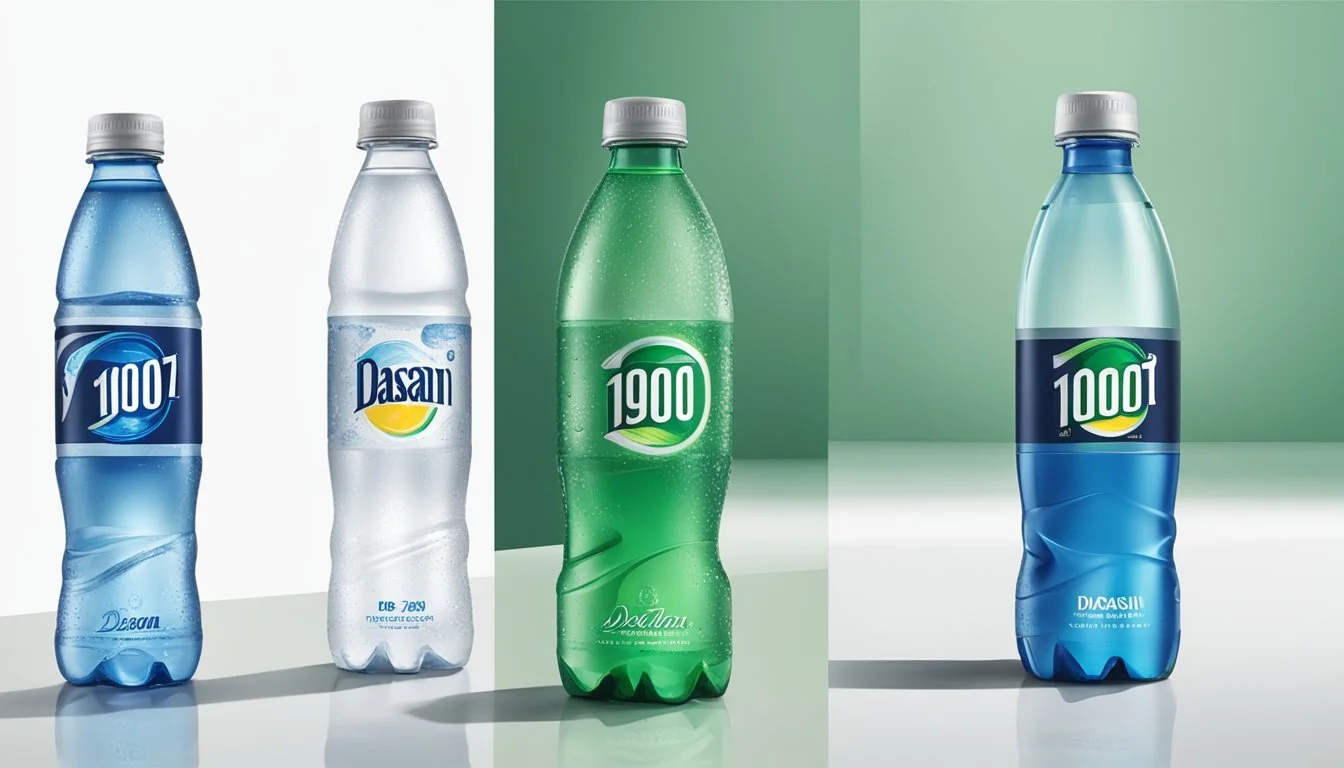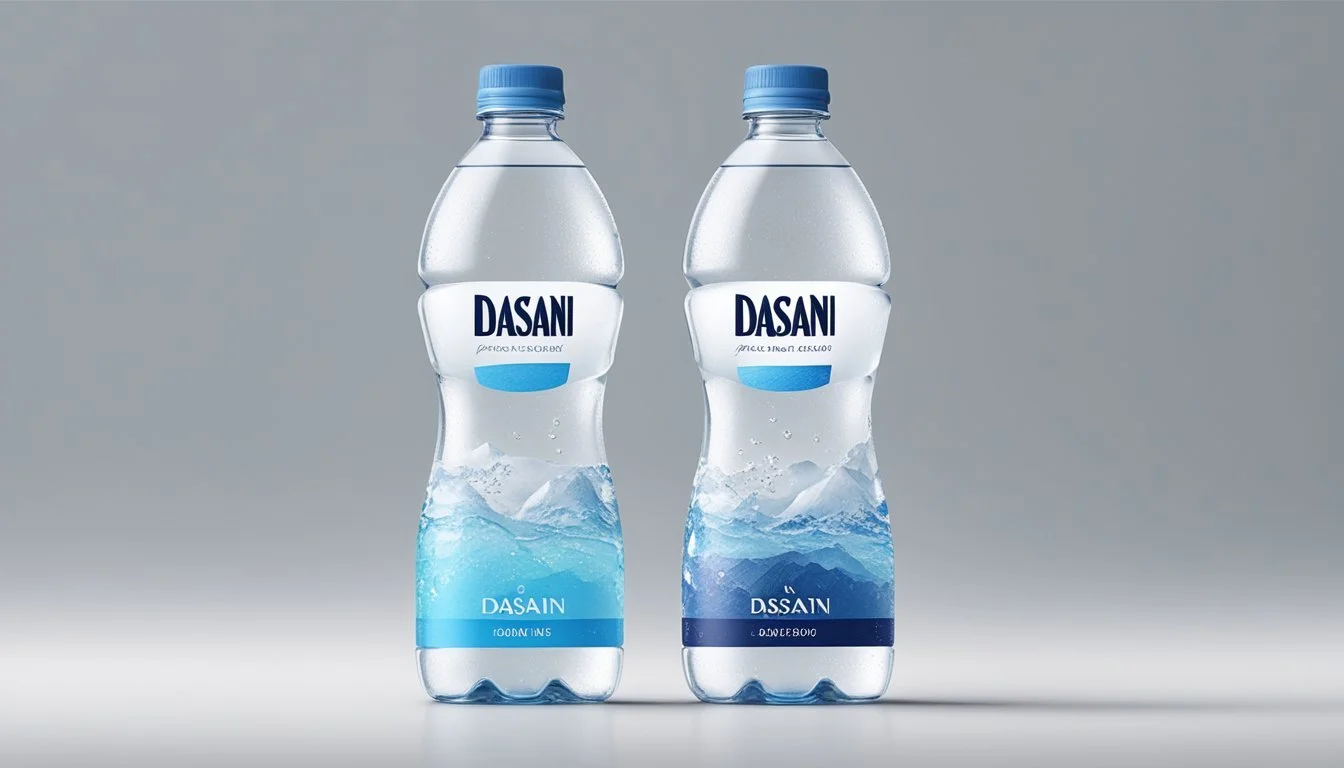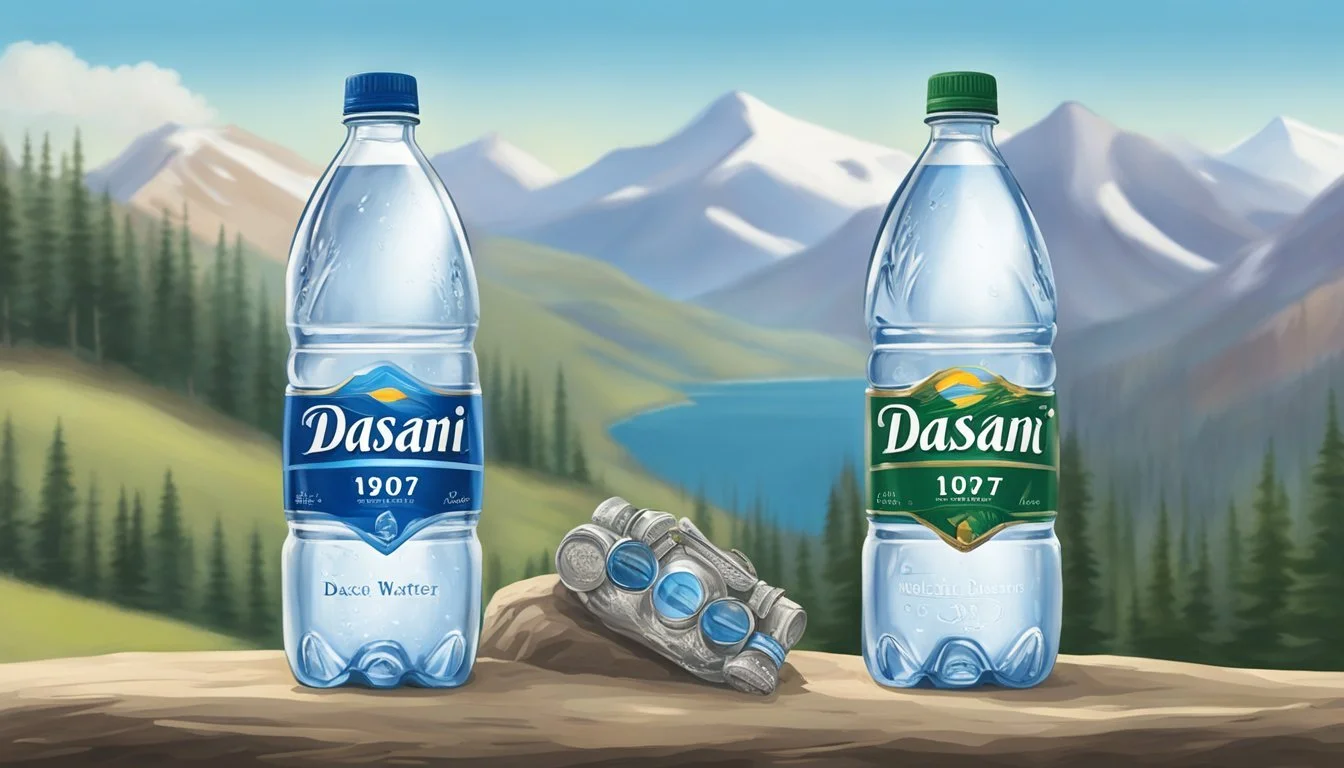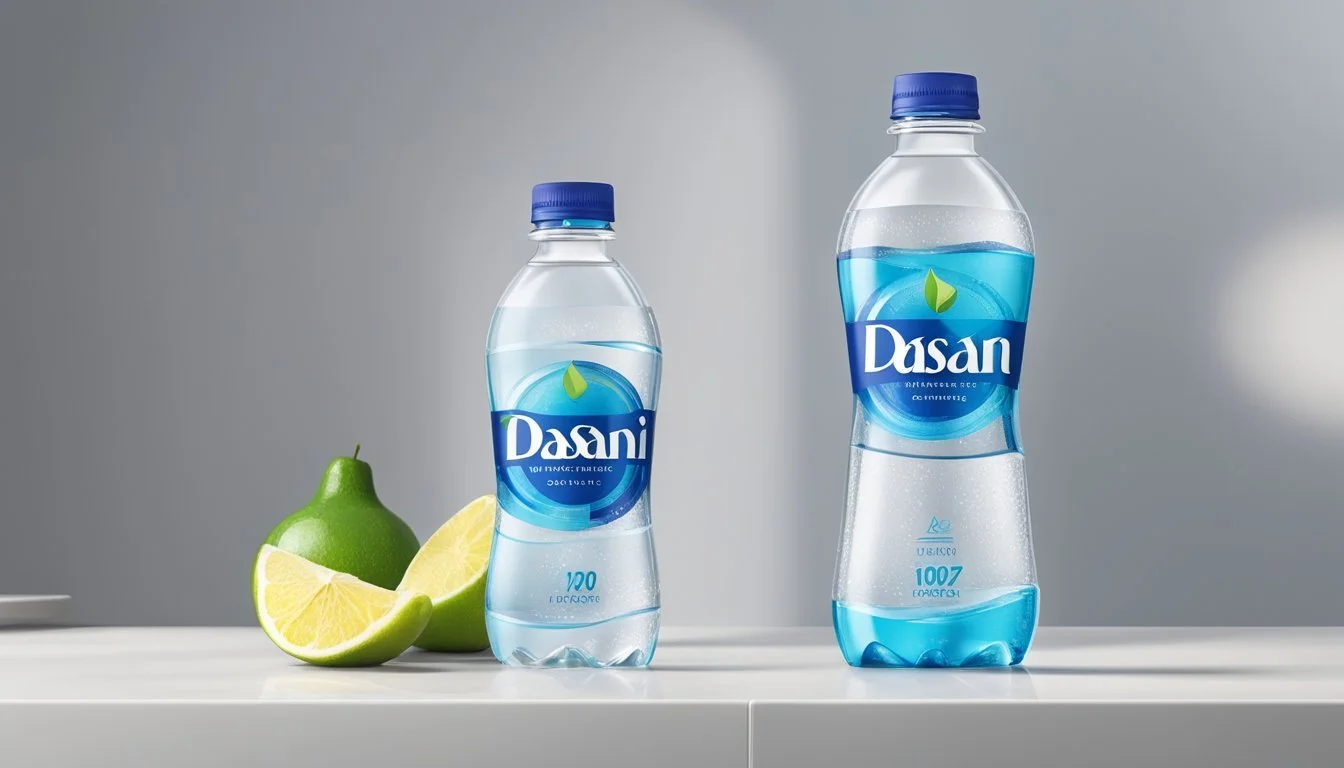1907water vs. Dasani
Comparing Quality and Taste
When it comes to choosing between 1907water and Dasani, many consumers wonder which bottled water is better for their needs. Both brands are well-known in the market, each offering unique qualities that set them apart. For those preferring a crisp, clean taste with a focus on sustainable sourcing, 1907water might be the ideal choice. Nevertheless, Dasani, with its widespread availability and purified, mineral-enhanced water, remains a strong contender.
Dasani is recognized for its purification process and the addition of a specific blend of minerals to enhance its flavor. This makes it a popular choice for many consumers seeking consistency and reliability in their bottled water. On the other hand, 1907water prides itself on being sourced from New Zealand, emphasizing natural purity and minimal processing, which appeals to those who prefer their water with fewer artificial enhancements.
Both options provide high-quality hydration, but the choice ultimately comes down to personal preference and values. Whether you prioritize sustainability and natural sourcing with 1907water or the practical, everyday accessibility of Dasani, knowing the strengths of each can help you make an informed decision.
Quality and Purity of Water
Both 1907water and Dasani claim high standards for their water quality and purity. They employ different sources and filtration processes, affecting the taste and mineral content.
Water Source and Filtration
1907water sources its water from New Zealand's Maunganui Springs, a naturally filtered spring water. This source, filtered through volcanic rock, provides a pure and mineral-rich water profile. The water undergoes minimal processing, maintaining its natural characteristics.
Dasani, on the other hand, uses municipal water sources and employs rigorous purification processes, such as reverse osmosis and hydro-7. These methods remove impurities and contaminants, ensuring a consistent and safe product. While effective, this extensive filtration often strips the water of naturally occurring minerals.
1907water's natural spring origin gives it a unique edge in terms of purity and mineral content. Conversely, Dasani's advanced filtration emphasizes safety and consistency.
Mineral and Electrolyte Content
1907water boasts a rich mineral content, naturally filtered through volcanic rock. This process enriches the water with essential minerals and electrolytes, enhancing hydration benefits. The minerals contribute to a distinctive taste and potentially offer health benefits.
Dasani reintroduces a controlled amount of minerals post-filtration, to improve taste and provide minor electrolyte content. These added minerals include magnesium sulfate, potassium chloride, and salt. While this enhances flavor, the mineral levels remain lower compared to naturally filtered options like 1907water.
For those prioritizing natural mineral intake, 1907water stands out. Meanwhile, Dasani provides a balanced taste with added electrolytes from a controlled source.
PH Levels and Alkalinity
1907water has a naturally occurring alkaline pH level around 8. This alkalinity is attributed to its natural filtration through volcanic rock. An alkaline pH can neutralize acidity in the body, which some consumers find beneficial.
Dasani targets a neutral pH, typically around 7, through its advanced purification processes. Maintaining a neutral pH ensures a clean and consistent taste, appealing to a broader audience.
Those seeking the potential benefits of alkaline water might prefer 1907water. Meanwhile, Dasani offers reliable neutrality, catering to those who favor a balanced and purified water source.
Taste and Water Flavor Profile
Taste plays a significant role in differentiating 1907water and Dasani, with contrasts in mineral and clean flavor profiles often influencing consumer choices.
A Sensory Comparison
1907water is known for its clean, crisp taste. Sourced from New Zealand, it undergoes minimal treatment, maintaining its natural flavor. Consumers often describe it as refreshing and pure. This clean taste is achieved through a light mineral content that does not overpower the water's natural flavor.
Dasani, produced by Coca-Cola, is engineered using reverse osmosis. It has added minerals for taste, which gives it a distinct mineral flavor. The added electrolytes contribute to a slightly salty or mineral-like taste. This contrast with 1907water's cleaner profile is notable and often a point of preference for different consumers.
Consumer Preferences
Many consumers have strong opinions about the taste of bottled water. For those preferring a natural and clean-tasting water, 1907water is often a top choice. Its subtle mineral content and refreshing purity are highly appreciated.
On the other hand, Dasani appeals to individuals who enjoy a more robust mineral flavor. The added minerals create a flavor that some find more satisfying, especially if they prefer water with a noticeable taste. Price and brand loyalty can also sway preferences.
In summary, the clear taste of 1907water competes with the engineered mineral profile of Dasani, catering to varying taste preferences in the market.
Health and Hydration Benefits
When comparing 1907water and Dasani, it's important to evaluate their impact on health and hydration. Key points of consideration include the essential minerals they provide and their respective pH levels.
Essential Minerals for the Body
1907water is sourced from New Zealand and is known for its natural mineral content. This water contains magnesium and calcium, which are crucial for bone health and muscle function. Additionally, these minerals play a key role in maintaining the body’s electrolyte balance, ensuring proper hydration levels.
Dasani is purified and enhanced with minerals such as magnesium sulfate, potassium chloride, and salt. Although the mineral content is added during processing, it contributes to the taste and provides necessary electrolytes, which are important for cellular functions and hydration.
Both waters contribute to hydration but from different approaches: natural mineral provision in 1907water and added minerals in Dasani. These variations can affect not only taste but also potential health benefits, making the choice largely dependent on personal preferences and health needs.
PH Balance and Hydration
1907water features a naturally alkaline pH level of approximately 8.0. Alkaline water helps neutralize acid in the body and is believed by some to provide superior hydration. This higher pH can also have antioxidant properties, potentially reducing the effects of free radicals and oxidation.
Dasani, on the other hand, has a pH level closer to neutral (around 7.0) due to its purification process. While not alkaline, neutral pH water is considered safe and effective for daily hydration. The neutral pH ensures the water is neither too acidic nor too alkaline, making it suitable for most consumers.
In terms of pH, the choice between 1907water and Dasani depends on whether one prefers the potential benefits of alkaline water or the balanced neutrality of purified water.
Packaging and Environmental Impact
The impact of bottled water on the environment is significant, with differences in packaging materials and carbon footprints playing crucial roles. This section details how packaging choices and recycling practices impact the sustainability of 1907water and Dasani.
Material Use and Sustainability
1907water uses biodegradable and recyclable materials. Its packaging is made from eco-friendly materials such as paper-based cartons, which reduce plastic waste. This approach aligns with consumers' increasing demand for sustainable products.
Dasani, on the other hand, utilizes PET plastic bottles. While recyclable, the effectiveness of this approach is limited by public recycling rates. Dasani has made strides by incorporating recycled materials into new bottles, aiming to reduce the use of virgin plastic.
Comparison Table:
Aspect 1907water Dasani Material Type Paper-based cartons PET plastic bottles Sustainability Biodegradable, recyclable Recyclable but often not recycled
Carbon Footprint and Recycling
Carbon emissions associated with bottled water production differ significantly. 1907water benefits from using materials with a lower carbon footprint in comparison to traditional plastic bottles. Production and transportation of paper-based cartons contribute less CO2, enhancing their eco-friendly profile.
Conversely, the production of Dasani's PET plastic bottles results in higher carbon emissions. Despite efforts to use recycled content, the initial production process remains energy-intensive. Recycling PET bottles can mitigate some of these impacts, but challenges in recycling rates lessen this benefit.
Critical Points:
1907water: Lower carbon footprint due to use of renewable materials.
Dasani: Higher carbon footprint, mitigated partially by recycling.
Carbon Footprint Analysis:
1907water: Reduced CO2 emissions with every bottle produced.
Dasani: Struggles with higher CO2 levels but aims to reduce impact with recycled materials.
By considering these factors, consumers can make more informed choices about the environmental impact of their bottled water selection.
Pricing and Availability
1907water and Dasani offer different experiences in terms of cost and ease of purchase. The varying factors of market presence and accessibility are key for determining the convenience and value each brand provides.
Market Presence and Accessibility
Dasani is known for its extensive distribution across the United States. It is commonly available in grocery stores, convenience stores, vending machines, and online retail platforms. This wide market presence ensures that consumers can easily find and purchase Dasani whenever they need it.
1907water, while also available in various locations, typically has a more niche market compared to Dasani. It is often found in specific health food stores, some upscale retailers, and online marketplaces. This can make it slightly less accessible than Dasani but still sufficiently available for those seeking its unique offering.
In terms of pricing, Dasani is generally positioned as an affordable option. For instance, a 500 ml bottle of Dasani might cost around $1.00. On the other hand, 1907water tends to be marketed at a higher price point due to its premium branding and emphasis on natural artesian purity, which can set it apart for consumers willing to pay extra for perceived quality.
While both brands provide convenient purchasing options, Dasani's broad market reach and economical pricing make it more accessible for everyday hydration needs. Conversely, 1907water caters to those looking for a premium, possibly more exclusive, hydration experience.
Brand Reputation and Consumer Trust
Public perception and endorsements reflect the credibility of 1907water and Dasani. Social media sentiment and third-party reviews play significant roles in shaping consumer trust.
Social Media and Brand Perception
Social media platforms have a tremendous impact on brand reputation. Dasani, managed by Coca-Cola, faced backlash on social media in 2020. Criticisms included complaints about its taste and quality. Influencers and YouTubers, such as Shane Dawson, highlighted consumer dissatisfaction, impacting brand perception negatively.
In contrast, 1907water has a relatively low profile on social media but maintains a positive image. Customer reviews often highlight its pure taste and sustainable practices. The brand markets itself as a premium water brand from New Zealand, which appeals to environmentally conscious consumers. Positive posts and hashtags reflect customer satisfaction and loyalty.
Third-Party Endorsements and Criticisms
Third-party endorsements can enhance or damage a brand's reputation. Dasani, backed by Coca-Cola, is subjected to scrutiny not only by consumers but also by critics. Third-party reviews often critique the presence of added minerals, which affect its taste. Nonetheless, its widespread availability and consistent quality control ensure it retains a significant market share.
1907water, although less recognized globally than Dasani, receives endorsements for its natural source and dedication to sustainability. Unlike larger brands like Nestlé and PepsiCo, it avoids additives, earning praise from environmental groups. Criticisms are minimal, mostly related to its premium pricing, making it a favored choice among eco-conscious consumers.
Quality, taste consistency, and brand values play crucial roles in these reviews, influencing consumer trust significantly.
Regulations and Industry Standards
Bottled water, including 1907water and Dasani, is subject to rigorous regulations to ensure safety and quality. Various agencies such as the FDA and EPA play critical roles in this oversight.
Federal and State Oversight
The Food and Drug Administration (FDA) regulates bottled water as a food product under the Federal Food, Drug, and Cosmetic Act (FFDCA). The FDA enforces stringent standards concerning the permissible levels of contaminants and the labeling of bottled water.
The Environmental Protection Agency (EPA) establishes guidelines for tap water, which sometimes overlap with FDA resources to ensure cross-consistency.
Additionally, state regulations may apply. States often adopt the FDA’s standards or impose stricter requirements, enhancing the regulatory landscape.
Compliance and Safety Measures
Bottled water companies must comply with specific purification methods to meet safety standards. These include processes like reverse osmosis and vapor distillation, utilized by brands like Dasani, ensuring impurities are effectively removed.
Manufacturers must also conduct regular testing for contaminants and adhere to labeling requirements, detailing the source and purification methods used.
Compliance measures include:
Regular contaminant testing
Label transparency
Adherence to FDA guidelines
Implementation of safe purification techniques
Through these measures, brands like 1907water and Dasani maintain high safety and quality standards, delivering trusted products to consumers.
Comparison to Other Bottled Waters
1907water and Dasani are among many bottled water brands consumers choose from today.
Voss is known for its minimalist design and comes from Norway, giving it a premium feel. Essentia, praised for its high pH level, attracts people looking for alkaline water.
Pure Life and Deer Park are household names, offering reliable, affordable options. Both are available widely and emphasize purity and safety.
LIFEWTR and Core Hydration focus on balanced pH and added electrolytes, catering to those seeking hydration and health benefits.
Icelandic Glacial prides itself on its natural spring source in Iceland, boasting a naturally high pH level around 8.4.
Acqua Panna, sourced from the Italian Apennines, and Perrier, known for its sparkling water from France, appeal to those who prefer a touch of elegance in their choice.
Zephyrhills and Nestlé Pure Life are popular in many U.S. households. Zephyrhills has a regional appeal, mainly in Florida.
Penta and Eternal Water differentiate themselves with claims of ultra-purification and natural pH, respectively.
Ethos Water, linked with Starbucks, combines a social cause with hydration, donating a portion of earnings to water initiatives.
Boxed Water attracts environmentally conscious consumers with its sustainable packaging.
Arrowhead, Ice Mountain, and Poland Spring are part of Nestlé's portfolio, providing familiar, dependable options.
1907water offers a natural alkaline level and a commitment to sustainability, distinguishing it from Dasani, which is purified and enhanced with minerals for taste.
Each brand has unique characteristics catering to different preferences and values, whether it's source, pH level, or packaging.






